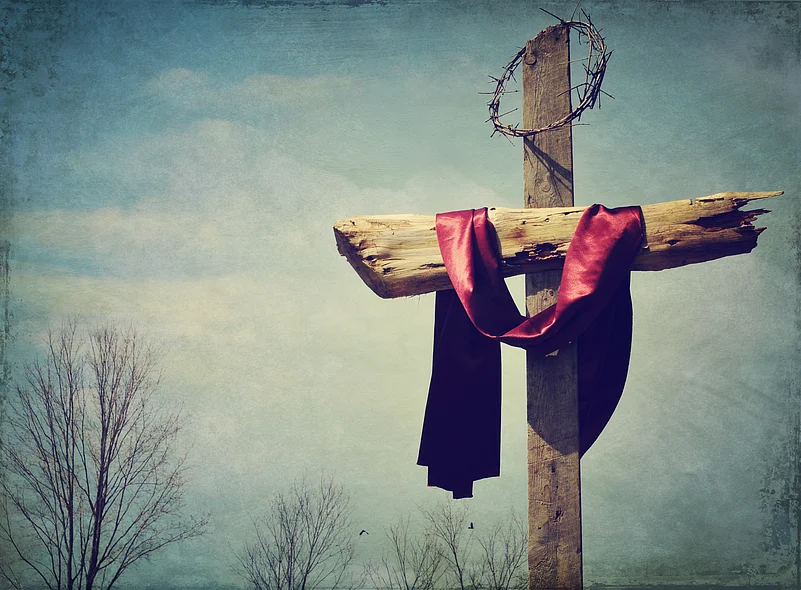The most important church holiday in the Christian calendar, Good Friday is a day combined with sorrow and great hope. This day symbolizes the crucifixion and death of Jesus Christ who is believed to be the foundation of the Christian faith. It is an event that has passed through centuries and is celebrated on the Friday before Easter Sunday. Overall, it holds a prestigious place in the liturgical traditions of Christianity throughout history.
Sacred Reflections: Understanding the Significance of Good Friday

Historical Context
Good Friday finds its origins in the drastic events leading up to the crucifixion of Jesus. As per the biblical stories, confronted by Roman soldiers and Pontius Pilate, the governor of Judea at the time, the event of Christ's Crucifixion was the result of numerous factors ranging from religious, political, and social. His teachings were considered offensive by the religious authorities at the time, who were resistant to change. The Roman authorities considered him a possible threat to the stability in Judea because he was liked by his people and made Messianic claims. The radical message of Jesus broke the established rules, thus, creating conflict with the authority. Nonetheless, being within proximity to the lowest level of society has contributed to the intensified confrontation. All these factors came together leading to the arrest, trial, and crucifixion of Jesus.
Despite the unavailability of enough evidence justifying the punishment of a death sentence, the absolute rigidness of the Jewish leaders on the prosecution ultimately led Pilate to proceed with the crucifixion. Subsequently, Jesus endured a torturous scourging and was crucified on Golgotha, known as the "place of the skull."
Yet, according to the Christian viewpoint, Jesus's crucifixion played a part in God's plan to achieve redemption. In the death and the re-birth, Jesus, Christian ascertains the forgiveness and the salvation of humankind. Hence there, the crucifixion of Jesus is considered to be the central event that displays both the conflict of humanity as well as the divine plan.
Crucifixion and Sacrifice
Indeed, without any doubt, crucifixion, which is no other than a ruthless form of execution was the source of intense pain imposed on the Lord. Sentenced to a cross, this wooden instrument of torture took a long period of time and was very painful. The burden of this sacrifice brings an even greater sadness to the tone of Good Friday.
The death of Christ on the cross is not only a historical event but also has heavy theological importance for Christians. It is an expression of the greatest gift, as Jesus, without hesitation, laid down his life to pay the debt of humanity. According to Christians, through his death on the cross, Jesus offered redemption and reconciliation between humans and God.
Resurrection and Faith
While Jesus' death was a peak of the Good Friday it is not the end of the story. After three days, when Jesus came back to life, Easter Day stands as a key event contributing to the Christian faith as is celebrated by the Christ-followers with great enthusiasm and joy.
The resurrection of Jesus is the fundamental fact upon which the Christian religion is established. On Easter Sunday, the empty tomb symbolizes this resurrection, representing hope and the victory of light over darkness.
Reflection and Mourning
Good Friday makes Christians go into the space of reflection and mourning while thinking about the incredible sacrifice of Jesus for the people. It serves as a reminder of forgiveness and the promise of eternal life. The seriousness of the day invites the believers to examine their inner selves and pray.
Global Observance
Introduced as a public holiday in lots of countries, Good Friday goes beyond national boundaries. Local traditions may differ from place to place depending on the worshippers, ranging from sacred reading and prayer in the church services to processions and re-enactments, all of which depict the gruesome crucifixion.
It's the time to meditate on the importance of Jesus' crucifixion and show appreciation for His love as a sacrifice. Through meditation on the crucifixion, Christians deepen their understanding of God's grace and mercy.
In countries with a Christian majority, Good Friday is an occasion for a solemn attitude and great thoughtfulness. On the very days of this sacred observation, churches organize some specific services, including scripture readings, prayers, and hymns dedicated to the passion of Jesus Christ. Some groups hold parades, where marchers accompany a cross or make the Stations of the Cross while walking through the streets of the town.
Spiritual Practices
Fasting and prayer are common observances on Good Friday, and they are a way of showing regret and also praying for spiritual endurance. Through prayers, devotees ask for forgiveness and direction and surrender themselves to the path of God.
Fasting: In fact, it is a symbol of compassionate understanding of Jesus' pain and a means for washing the soul. Through fasting Christians reject physical sense of well-being and during this period try to focus on God. So, it is mainly the time for soul attention.
Prayer: The heart of Good Friday is when people address God by praying, thanking, and asking for help on this special day. In seeking comfort during the most troubling situations of life, people eagerly turn to prayer and draw stability to cope with troublesome tasks.
The cross has always been a symbol of hope and encouragement for believers providing the imagery of what love in action can achieve in sustaining personal transformation.
Symbolism of the Cross
Concerning Good Friday, the cross occupies the most important symbolic position. It depicts Jesus's sacrifice and unconditional love for humankind. It symbolizes the Passion and God's unconditional affection for humankind. The Cross symbolizes Jesus' agony and sacrifice on the cross, but also is a sign of rebirth and eternal life.
The significance of Good Friday is beyond being a mere Holiday, it is a day of profound and multifaceted experience for Christians.A day of remembrance, gratitude, and ultimately, hope- a hope ignited by Easter Sunday and the transformative power of Jesus’s sacrifice.
Good Friday provides an opportunity for individuals to engage with themes of suffering, sacrifice, and spiritual renewal, irrespective of their religious affiliations. It prompts reflection on the universal human experience of pain and redemption, inviting individuals to contemplate the deeper meanings of life and faith. As Christians observe Good Friday, they are reminded of the central tenets of their faith: redemption, forgiveness, and eternal life through Jesus Christ. Furthermore, the celebration of Good Friday makes us realize the long-lasting influence of religious stories on human culture and society and helps highlight the importance of religion in the formation of shared societal values.
- Previous Story
 Soybean Production Increases By 6% To 126 Lakh Tonnes In 2023 Kharif Season: SOPA
Soybean Production Increases By 6% To 126 Lakh Tonnes In 2023 Kharif Season: SOPA - Next Story






















